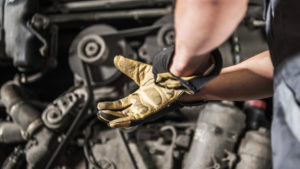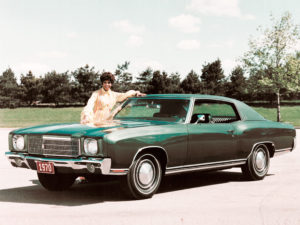Post updated Tuesday, August 8, with new FAQ
Rolling off a dealer lot in a new-to-you car is a great feeling. Even if it’s a used car, the excitement is and should be real. Many buyers find that sensation doesn’t last long, though, as a surprising number of car deals end with the dealer taking back the vehicle over issues with the financing.
According to NPR, yo-yo sales happen when a car dealer promises too much or signs a deal it can’t get financed by a bank. Though the sales contracts often look final, NPR noted that the dealer often includes language that allows them to claw the car back if financing falls through. Sometimes called spot delivery, the dealer can have buyers sign a contract when banks are closed and need to actually “sell” the deal to the lender later. If the lender balks at the terms, the dealer can demand that the buyer return to sign a new contract with terms the bank will take.

The frustrating and scary part is that dealers sometimes take weeks to realize financing isn’t materializing. By that time, the buyer’s trade-in is long-gone, leaving them with few or no options to walk away from whatever deal they’re offered when they return to sign new paperwork, which is almost always worse for the buyer. The dealer holds most of the power in these interactions, which harms buyers and can put them in serious legal jeopardy if there’s a delay in returning the vehicle or signing paperwork.
NPR found that some dealers reported cars stolen if the buyer didn’t immediately return to sign a new deal or give it back. The situation can be puzzling for law enforcement, as the buyers have signed contracts stating they own the car. The FTC is accepting comments and considering new rules against the practice, so we can hope for better times ahead.
We don’t know the exact numbers, but with millions of vehicles sold each year, we’re likely still not talking about a significant number of cases. Some larger dealer groups refuse to engage in the practice and say they absorb losses related to contracts they can’t get financed. Even so, there are some steps you can take to avoid the hassle and financial challenges of a yo-yo car deal.

How to avoid yo-yo car deals
Paying close attention to the terms and conditions in the sales contract is essential, but there are other things you can do to protect yourself.
Get pre-approved before shopping
The best way to avoid financing hassles at the dealer is to avoid financing at the dealer altogether. Head to your local credit union or bank and get preapproved for an auto loan. Sometimes, you can get a blank check from the bank to pay for the car on the spot. At the same time, you can often find better interest rates and more agreeable terms with your own financing, so it’s a good idea all around.
Carefully review the paperwork and ask questions
Don’t sign anything without carefully reading it first. Make sure you understand your rights under the sales contract and your options if anything goes wrong. Ask the financing manager about the dealer’s policy on spot delivery and what will happen if it can’t get the deal financed. If you use dealer financing to get a promotional interest rate or a more favorable price, make sure the rate is final before leaving.
Don’t get emotional during the purchase process
If a dealer’s trying to take back a car you thought you owned, it’s ok to get upset, but the best thing to do during the buying process is to keep a cool head. Remember the excitement we talked about earlier? It’s real, and it can cloud your judgment. Don’t get caught up in the dream of owning a shiny new car until you’re sure you’re getting the deal you thought you were.
Frequently asked questions
What happens if I return the car because I can’t afford it?
If you surrender a vehicle because you can’t pay the loan anymore, the action can severely impact your credit. The lender will take it back, not the dealer, and sell it, leaving the remaining amount on your credit. However, if you let the car get repossessed, the action will show on your credit report and can have a more significant impact.
Can I negotiate after a car repossession?
In many cases, yes. You might be able to work out terms with your lender that allow you to repay or catch up on past-due payments. Sometimes called reinstatement, many lenders allow the borrower to resolve their past-due balance and carry on with the loan as planned.
Can I sue the car dealer for my expenses if I end up in a yo-yo sale?
As with many legal issues, it depends. Your standing in the process depends entirely on the rights you agreed to in the sales contract. You might be required to enter arbitration or other legal procedures, so it’s best to know where you stand up front by carefully reading the contract.
Is it best to pay cash for a car?
If you can afford to buy a new or used car outright with cash and can avoid the loan process altogether, go for it. Interest rates are high right now, but some people find that investing their money and making payments is a smarter move, but that’s usually only the case when rates are low.
Will having the car taken back over paperwork ruin my credit?
No, it shouldn’t. The only thing to remember is that you’ll have hard inquiries on your credit if you applied for a loan for the car to begin with.
Can an individual take back a car after the sale?
No. Once the paperwork is finalized with an individual, the vehicle is yours. If you’ve used a bank to finance the purchase, you’ll want to make sure you’re all set with the loan documentation.
Are the buy here, pay here lots a good place to buy a car?
There are good and bad apples in every lot, but buy here, pay here lots have grabbed attention and poor feedback for having shady sales and lending practices. Some place trackers on cars to quickly repossess them if you fall behind on payments, so it’s a good idea to be clear on what you’re getting if one of those dealers is your first choice.
What if I can’t afford my car payments?
If you’re facing financial hardship and are worried that you won’t be able to keep making payments, the best thing to do is call your bank. Be proactive in working on a solution that could allow you to keep the car, but be aware that the lender isn’t obligated to work out a plan with you. Just know that ignoring the problem is the worst thing you can do.
Can a bank cancel my loan after signing?
It’s very rare, but yes, the bank can unwind the loan after you’ve signed the final paperwork. It’s worth noting that this only happens in cases where there were serious errors in the paperwork.
How long do I have to change my mind after buying the car?
Once you’ve signed the deal and driven off the dealer’s lot, they’re under no obligation to take it back unless they offer a guaranteed return policy or you purchased an extended return option.









